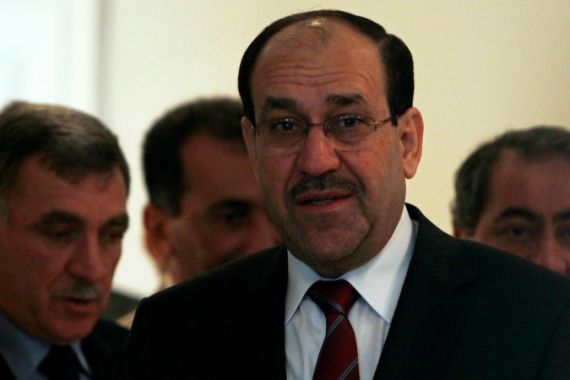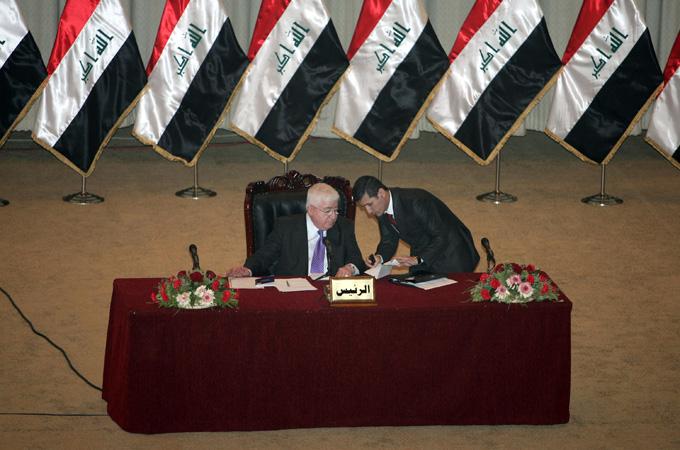Iraqi Shia bloc rejects Saudi offer
National Alliance turns down Saudi monarch’s offer to host all-party talks to break Iraq’s political impasse.

 |
|
Iraq has been without a government since March 7 polls failed to throw up a clear winner [GALLO/GETTY] |
The National Alliance, Iraq’s main Shia bloc, has turned down a Saudi offer to host all-party talks to resolve months of deadlock over forming a new Iraqi government.
The offer was turned down on Sunday after some politicians voiced fears over foreign interference. Saudi Arabia’s King Abdullah had a day earlier volunteered to host the talks in November.
The National Alliance, a coalition of Shia blocs, including that of incumbent prime minister,
Nouri al-Maliki’s coalition, said that a deal in Baghdad was close after the highest court ordered parliament to resume sessions last week.
“Though we express our appreciation to Saudi Arabia for its concern about the situation in Iraq and its
willingness to provide support, we would like to confirm Iraqi leaders are continuing their meetings to reach a national consensus,” a statement issued by the alliance, said.
A senior member of al-Maliki’s bloc said that the Kurdish Alliance also supports this statement.
The Kurdish alliance has 57 seats in parliament and al-Maliki’s camp is working closely with them to form a coalition government.
A spokeswoman for the rival Iraqiya list, led by Iyad Allawi, the former prime minister, however, welcomed the Saudi monarch’s initiative.
“We ask all political blocs to welcome the initiative, preventing Iraq’s security situation from deteriorating” amid continued political deadlock, Maysoon al-Damluji, a prominent member of the bloc, said.
‘Hidden agenda’
Hussein Shobokski, a Riyadh-based columnist and businessman told Al Jazeera that the offer is reminiscent of previous offers.
“The Saudi offer is not new, they have done this in the past. It is also an Arab offer under the umbrella of 22 Arab nations,” he said.
“The immediate reaction of some parties rejecting the offer indicates that there’s a hidden agenda. Any offer to solve the problems should be taken seriously.”
The National Alliance named al-Maliki as its nominee for a second term on October 1 despite dissent within the coalition.
Iraq’s Sunni Arab neighbours and the United States would like to see a power-sharing deal between al-Maliki’s National Alliance and Iraqiya for fears of Shia Iran’s growing regional influence.
Though Iraqiya’s Allawi is a Shia, he enjoys strong support among Sunni Arabs, who were dominant during Saddam Hussein’s rule.
US officials fear that an agreement sidelining Sunnis could reignite a weakened but stubborn sectarian violence that still kills dozens every month.
Backroom discussions
Iraq has been without a government since the election on March 7 this year, when the Sunni dominated Iraqiya bloc won 91 seats and al-Maliki’s State of Law netted 89.
Despite months of political horse-trading and backroom negotiations, neither side has been able to secure a governing majority in the parliament, leaving the country in political paralysis.
Speaking to Al Jazeera, Farez Braizat, a Middle East analyst, said that “backroom discussions haven’t yielded any positive results and Iraq doesn’t need more political fighting amongst its political elite”.
“Maliki has got the support from Iranians to form the government. Iranians are not going to give up the power in Iraq easily.”